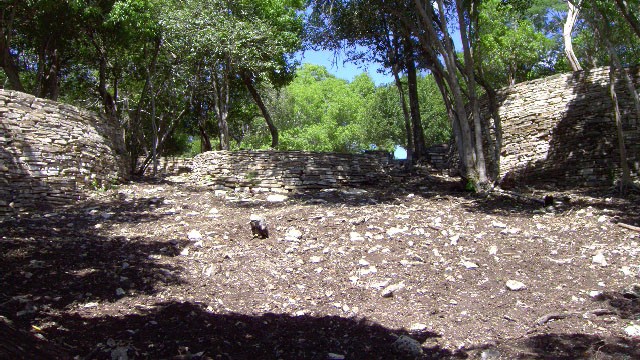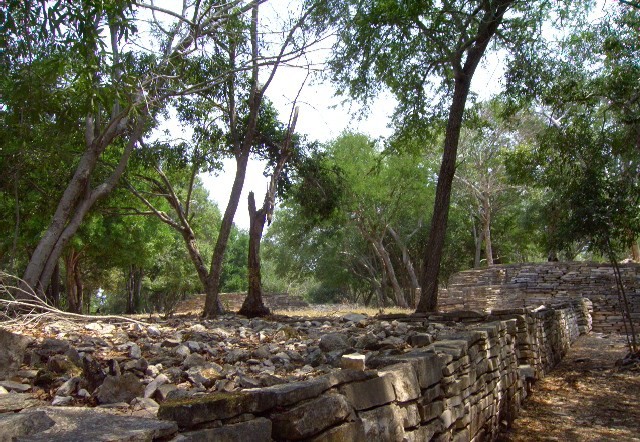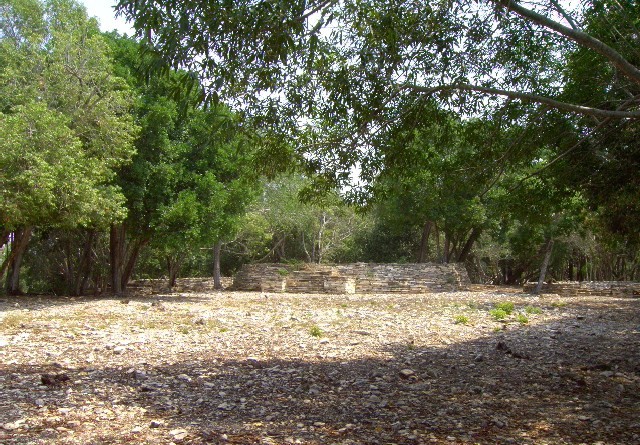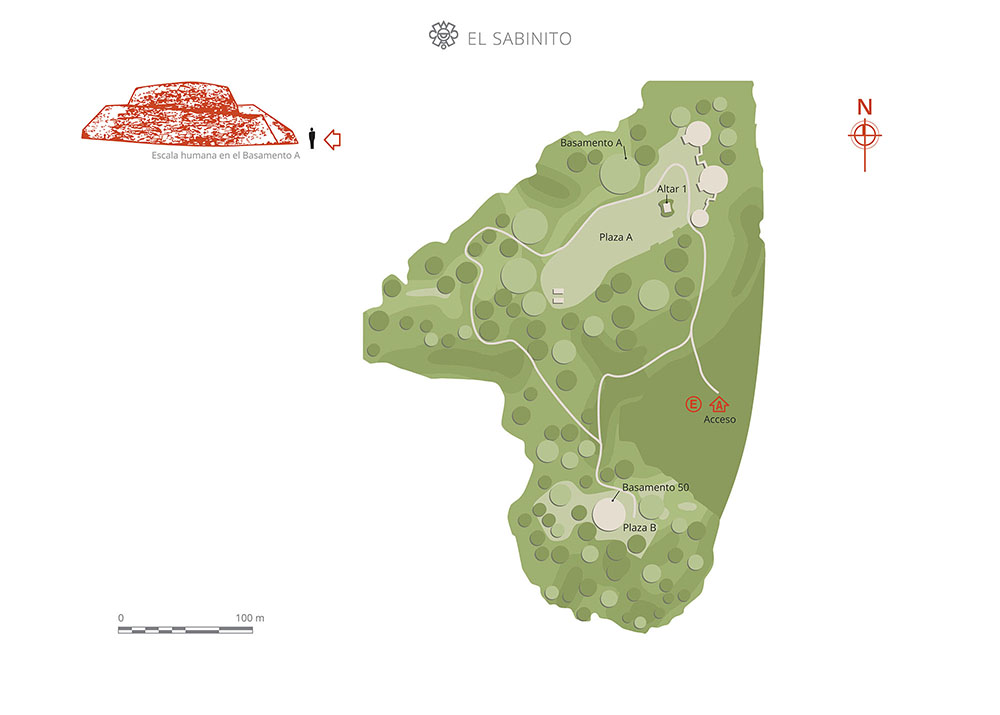El Sabinito
Named after the El Sabinito ejido (community) where it is located.
In the foothills of the Sierra de Tamaulipas, it has more than 600 structures adapted to the irregular local terrain. The highlights are two enormous circular constructions and a pyramid with a ceremonial altar.
About the site
El Sabinito is one of the settlements with the longest records of occupation in the Sierra de Tamaulipas, beginning more than 12,000 years ago when the first nomadic groups of hunter-gatherers passed through. On the other hand, the founders of El Sabinito, who inhabited the site between 200 and 1300, were sedentary farmers, belonging to the “Pueblito Complex” of the Sierra Cultural Tradition.
The site is in a hilly region, 1,200 feet above sea level, and it has circular plinths constructed from an earth and stone core carefully clad with slabs. The construction method employed at El Sabinito is adapted to the terrain. Plinths of various diameters and heights were built with connecting terraces and avenues also made from slabs, and at the same time creating a harmonious effect through their constant use. The way they fit into the environment is reminiscent of the walls of the canyons and ravines of the Sierra de Tamaulipas.
The archeological material retrieved in the process of investigation and major maintenance work is of a varied nature: pots, axes, stone and shell beads, projectile tips, figurines, grinding stones (metates) and stone pestles (tejolotes). The archeological material and architecture indicate that in addition to hunting and gathering, the people of El Sabinito often relied on farming activity, and that this was part of the process of becoming sedentary.
The site is in a hilly region, 1,200 feet above sea level, and it has circular plinths constructed from an earth and stone core carefully clad with slabs. The construction method employed at El Sabinito is adapted to the terrain. Plinths of various diameters and heights were built with connecting terraces and avenues also made from slabs, and at the same time creating a harmonious effect through their constant use. The way they fit into the environment is reminiscent of the walls of the canyons and ravines of the Sierra de Tamaulipas.
The archeological material retrieved in the process of investigation and major maintenance work is of a varied nature: pots, axes, stone and shell beads, projectile tips, figurines, grinding stones (metates) and stone pestles (tejolotes). The archeological material and architecture indicate that in addition to hunting and gathering, the people of El Sabinito often relied on farming activity, and that this was part of the process of becoming sedentary.
Map
Did you know...
- The Pueblito Complex or Sierra Region is an important pre-Hispanic tradition present both in the Sierra de Tamaulipas and in the Sierra Madre Oriental.
- In turn the Pueblito Complex was located between two major cultural regions: Mesoamerica was the great farming region, while hunter-gatherer groups predominated in Aridoamerica.
- The number of structures, their sophisticated design and the size of the site suggest that this was a center of regional importance.
- Excavations have not uncovered human remains, which has aroused the curiosity of the archeologists. It may be that the remains of the dead were buried outside the settlement.
Practical information
Tuesday to Sunday from 10:00 to 17:00 hrs
Free entry
Se localiza en las primeras elevaciones de la parte norte de la Sierra al oriente de Ciudad Victoria, Tamaulipas.
From Ciudad Victoria, follow the road towards Soto La Marina and at km 97 take the dirt road towards the ejido of El Sabinito; the site is located 4 km ahead.
Services
-
+52 (834) 306 01 60
-
This email address is being protected from spambots. You need JavaScript enabled to view it.
Directory
Dirección del Centro INAH Tamaulipas
Tonatzin Silva Cárdenas
This email address is being protected from spambots. You need JavaScript enabled to view it.
+52 (834) 306 01 60, ext. 368000
Administración
María Alicia Palomares García
This email address is being protected from spambots. You need JavaScript enabled to view it.
+52 (834) 306 01 60, ext. 368009













